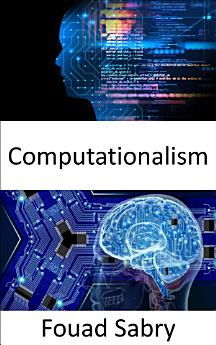Computationalism: Fundamentals and Applications
Acerca deste livro eletrónico
The computational theory of mind (CTM), also known as computationalism, is a family of beliefs that may be found in the field of philosophy of mind. These views claim that the human mind is an information processing machine, and that cognition and consciousness together are a sort of computing. Computationalism is also known as the computational theory of mind (CTM). Warren McCulloch and Walter Pitts (1943) were the pioneers who originally proposed the idea that brain activity might be modeled as a computer process. They argued that computations in the neural networks may explain cognition. The theory was first proposed by Hilary Putnam in 1967 in its current iteration, and it was developed by Jerry Fodor, a PhD student of Putnam's who was also a philosopher and cognitive scientist during the 1960s, 1970s, and 1980s. Although the position was hotly debated in analytic philosophy in the 1990s due to the work of Putnam himself, John Searle, and others, it is still widely held in modern cognitive psychology, and many theorists in evolutionary psychology take it as a given. This viewpoint has been making a comeback in analytic philosophy throughout the 2000s and 2010s.
How You Will Benefit
(I) Insights, and validations about the following topics:
Chapter 1: Computational Theory of Mind
Chapter 2: Cognitive Science
Chapter 3: Computation
Chapter 4: Functionalism (Philosophy of Mind)
Chapter 5: Artificial Consciousness
Chapter 6: Connectionism
Chapter 7: Cognitive Architecture
Chapter 8: Neurophilosophy
Chapter 9: Philosophy of Artificial Intelligence
Chapter 10: Neural Computation
(II) Answering the public top questions about computationalism.
(III) Real world examples for the usage of computationalism in many fields.
(IV) 17 appendices to explain, briefly, 266 emerging technologies in each industry to have 360-degree full understanding of computationalism' technologies.
Who This Book Is For
Professionals, undergraduate and graduate students, enthusiasts, hobbyists, and those who want to go beyond basic knowledge or information for any kind of computationalism.











